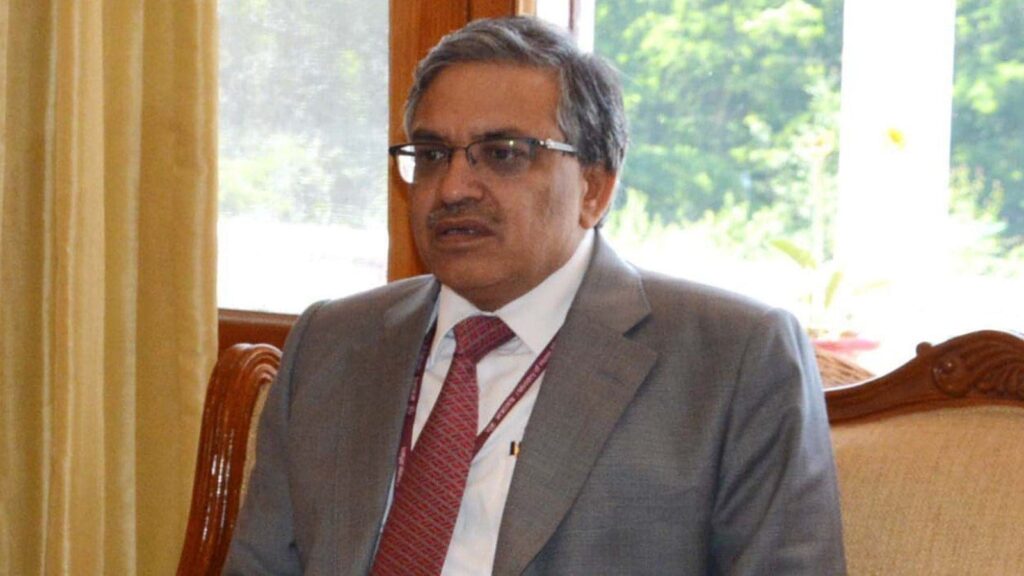970x125
A day after Chief Election Commissioner (CEC) Gyanesh Kumar asked Lok Sabha Leader of Opposition (LoP) Rahul Gandhi to either submit his allegations of vote theft in a sworn affidavit within a week or apologise to the nation, the INDIA bloc is learnt to be considering moving an impeachment notice against him.
970x125
Sources said the matter was discussed at a meeting of the floor leaders of the Opposition bloc chaired by Rajya Sabha LoP and Congress president Mallikarjun Kharge earlier in the day. The decision to initiate impeachment proceedings against Kumar is likely to be announced at a press conference scheduled for 3 pm.
“The ECI (Election Commission of India) cannot relinquish its Constitutional duty and evade genuine queries of political parties. The ‘right to vote’ is the most important right, given to us by the Constitution of India. INDIA will protest any attempt to stifle Democracy,” Kharge said.
The possibility of the impeachment notice evoked a sharp reaction from the BJP, with the ruling party questioning the Opposition’s intention.
“The whole of India is seeing the behaviour of the Congress party and Opposition parties for the last few days, especially with regard to the SIR issue and the Bihar elections…that the activities of the Parliament are being obstructed. No work is being allowed to be done. What is the intention behind this? What is the intention behind the tour that Rahul Gandhi is doing? There is only one intention behind this, and that intention is how to save the infiltrators,” said BJP MP Sambit Patra.
“This is a natural process that it becomes the responsibility of the Election Commission to clean up the infiltrators … How to win elections through infiltrators, how to use infiltrators, how to promote the politics of appeasement, this is what Rahul Gandhi and the Congress party have been doing…” he added.
How is a CEC removed?
Article 324 (5) of the Constitution states that “the Chief Election Commissioner shall not be removed from his office except in like manner and on the like grounds as a Judge of the Supreme Court and the conditions of service of the Chief Election Commissioner shall not be varied to his disadvantage after his appointment”.
It further provides that “any other Election Commissioner or a Regional Commissioner shall not be removed from office except on the recommendation of the Chief Election Commissioner”.
The grounds for the removal of the CEC and other Election Commissioners (ECs) are also set down in Section 11 of the Chief Election Commissioner and other Election Commissioners (Appointment, Conditions of Service and Term of Office) Act, 2023, which regulates the appointment, conditions of service and term of office of the CEC and the ECs.
The Judges Inquiry Act, 1968, Section 3, which pertains to “Investigation into misbehaviour or incapacity of Judge by Committee” provides that “If notice is given of a motion for presenting an address to President praying for the removal of a Judge…(a) in the case of a notice given in the House of the People, by not less than one hundred members of that House; (b) in the case of a notice given in the Council of States, by not less than fifty members of that Council…”
Following this, the Act states further, the Speaker or, as the case may be, the Chairman may, after consulting such persons, if any, as he thinks fit and after considering such materials, if any, as may be available to him, either admit the motion or refuse to admit the same.”
If the motion is admitted, the Speaker or, as the case may be, the Chairman “shall keep the motion pending and constitute, as soon as may be, for the purpose of making an investigation into the grounds on which the removal of a Judge is prayed for, a Committee consisting of three members”.
One of the members “shall be chosen from among the Chief Justice and other Judges of the Supreme Court”, one from among the Chief Justices of the High Courts, and one “a person who is, in the opinion of, the Speaker or, as the case may be, the Chairman, a distinguished jurist”.
This Committee “shall frame definite charges against the Judge on the basis of which the investigation is proposed to be held” and such charges “together with a statement of the grounds on which each such charge is based shall be communicated to the Judge and he shall be given a reasonable opportunity of presenting a written statement of defence within such time as may be specified in this behalf by the Committee.”
970x125

